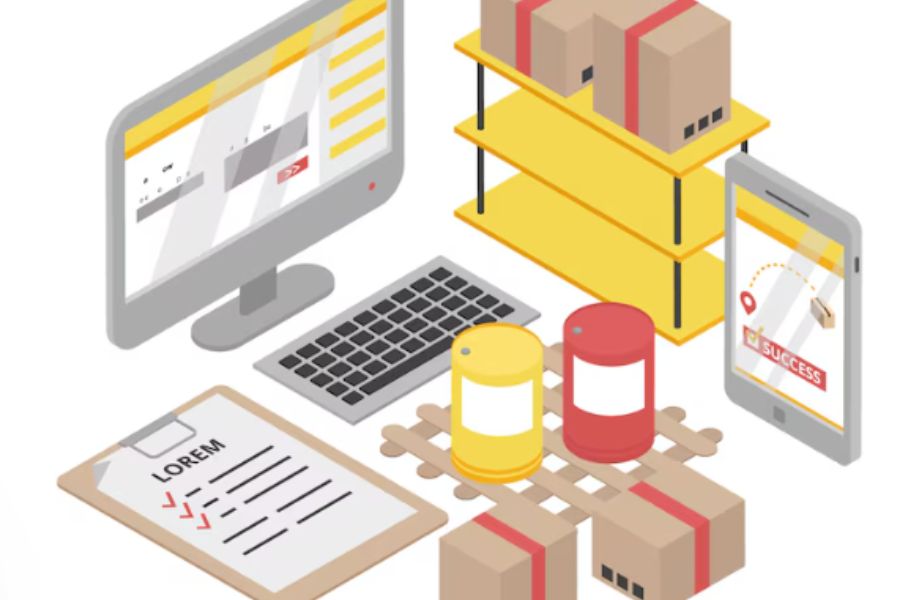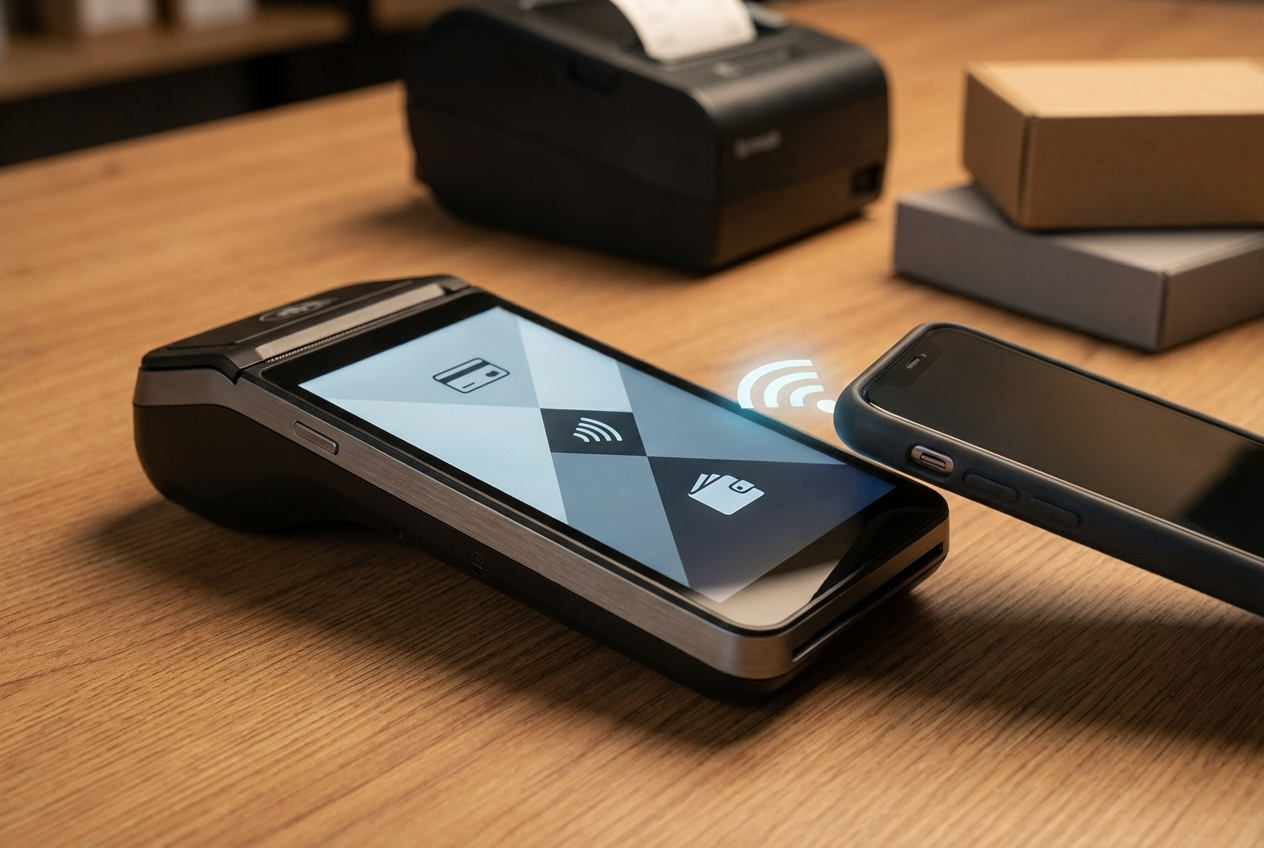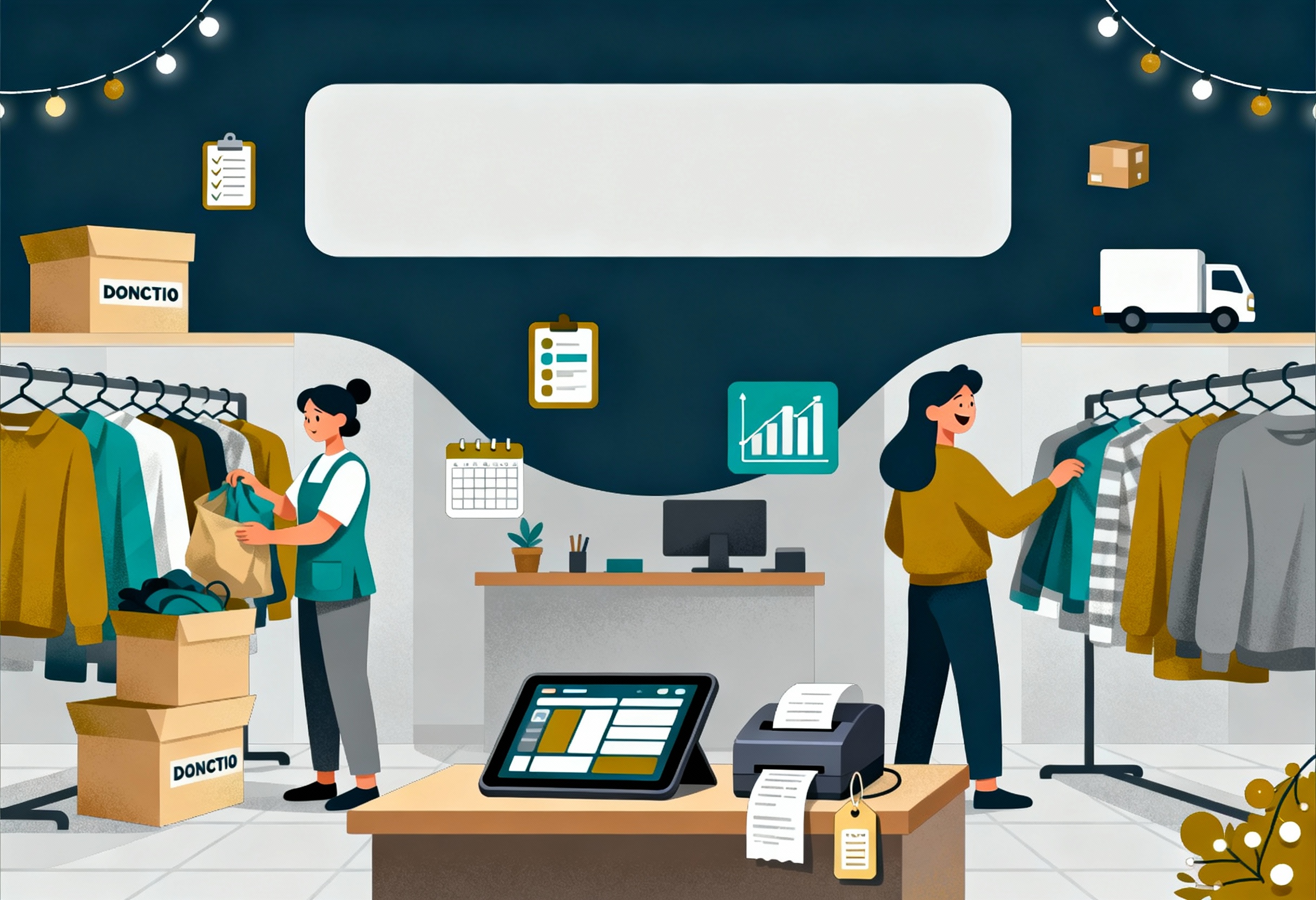Inventory management is the backbone of every successful Shopify store. Without a solid system in place, tracking stock levels, forecasting demand, and avoiding costly oversells or stockouts becomes a nightmare. With hundreds of solutions on the market, choosing the right inventory management software for Shopify can be overwhelming. In this article, we’ll delve into the criteria for selecting the best tool, examine integration features, and review the top 5 options for inventory management software Shopify.
Highlight
- Integration, real-time tracking, scalability, UI, ROI, support, demand forecasting, and barcode scanning – essentials for flawless Shopify inventory control.
- ConnectPOS excels with automation and multi-location synchronization; Sumtracker, Shopify, NetSuite, and Lightspeed cater to the needs of SMBs through enterprises.
Inventory Management for Shopify Stores
Inventory management software is a tool that centralizes and organizes all data related to a business’s inventory. It helps automate various inventory-related tasks, making it easier to monitor stock levels, track orders and sales, and manage overall inventory operations efficiently.
A Shopify store thrives on smooth operations, and at its heart lies effective inventory management. This guarantees you never run out of bestsellers or tie up capital in slow-moving products. Shopify offers some native capabilities, but growing stores require advanced tools that go beyond basic stock tracking.
The right solution provides real-time inventory visibility, demand forecasting, barcode scanning, and more, directly integrated into your Shopify dashboard. Effective inventory management minimizes human errors, maximizes profitability, and supports seamless omnichannel fulfillment.
Criteria for Selecting Inventory Management Software for Your Shopify Stores
With countless inventory management software Shopify on the market, it’s important to assess each option based on key performance areas to confirm the system aligns with your business goals, size, and structure. Below are the criteria you should consider before making a final decision.
Integration Capabilities with Shopify
Seamless integration with Shopify is non-negotiable. The inventory management software should sync effortlessly with your Shopify store to ensure real-time data accuracy. Look for solutions that offer:
- Automatic synchronization of inventory, product listings, and pricing
- Bi-directional data flow between Shopify and the software
- Compatibility with other Shopify apps and extensions
- Minimal downtime or errors during integration
A strong integration reduces manual work, eliminates data silos, and ensures smooth order processing and fulfillment.
Real-Time Tracking and Automation
Real-time inventory tracking helps you stay on top of stock levels and prevent issues such as overselling or stockouts. A robust system should provide:
- Live inventory updates across sales channels and warehouses
- Low stock alerts and automatic reordering features
- Barcode scanning and RFID compatibility
- Batch tracking, serial number tracking, and expiry date monitoring (if applicable)
Automation capabilities also streamline tasks like order routing, purchasing, and inventory adjustments, saving time and reducing errors.
Scalability and Multi-location Support
As your Shopify store grows, your inventory system should grow with it. Opt for a solution that supports:
►►► Optimal solution set for businesses: Multi store POS, Next-gen POS, Inventory Management Software (MSI), Self Service, Automation, Backorders
- Multiple warehouses or fulfillment centers
- Inventory transfer between locations
- Centralized control with decentralized inventory visibility
- Support for international operations, including multi-currency and multi-language features
Scalable systems ensure that your operations remain agile and organized, even as you expand into new markets or sales channels.
User Interface and Ease of Use
A powerful system is only effective if it’s easy to use. The inventory management software should have:
- An intuitive dashboard with a clear overview of key metrics
- Customizable views and reporting
- Mobile access for on-the-go inventory checks
- Minimal learning curve for onboarding new users
User-friendly design increases team adoption, minimizes training costs, and improves workflow efficiency across departments.
Cost vs. Value: ROI Considerations
Price is an important factor in choosing inventory management software Shopify, but the real focus should be on value for money.
- What features are included at each pricing tier
- Whether it charges per user, per order, or per location
- How much time and money does the system save you monthly
- The return on investment in terms of fewer stockouts, better forecasting, and increased customer satisfaction
Select a solution that aligns with your budget while providing the capabilities that support your business objectives.
Support and Customer Service Quality
Reliable customer support can make a big difference, especially during setup and peak sales periods. Prioritize software providers that offer:
- 24/7 customer support via chat, phone, or email
- Onboarding and training services
- Comprehensive documentation and how-to guides
- Dedicated account managers or technical support teams
A responsive and knowledgeable support team ensures issues are resolved quickly, keeping your operations running smoothly.
Top 5 Recommended Inventory Management Software for Shopify
Inventory management is at the heart of any e-commerce operation, especially for Shopify store owners managing multiple sales channels, SKUs, and fluctuating customer demands. The right software helps optimize inventory tracking, avoid overselling, automate stock updates, and improve overall operational efficiency.
We’ll look into the top 5 inventory management software Shopify businesses.
ConnectPOS
ConnectPOS is a powerful cloud-based POS and inventory management software Shopify solution that seamlessly integrates with Shopify. Designed for omnichannel retail, ConnectPOS offers real-time synchronization of inventory, orders, and customer data across physical and digital touchpoints.
ConnectPOS offers a superior suite of inventory management software that goes beyond basic stock tracking, making it ideal for sophisticated operations.
- Real-Time Inventory Synchronization: Instantly updates stock levels across all Shopify stores, warehouses, and POS terminals with zero delays.
- Multi-Warehouse and Store Management: Supports unlimited inventory locations with easy transfers and warehouse-specific stock tracking.
- Batch, Lot, and Serial Number Tracking: Enables detailed tracking of products for warranty, recall, and compliance management.
- Automated Reorder Points: Set custom low-stock thresholds for each SKU to trigger restock reminders or automated purchase orders.
- Barcode Generator and Scanner Integration: Create, scan, and print barcodes directly within the system to enhance accuracy in receiving and dispatch.
- Stock Auditing and Adjustment Tools: Perform physical stocktakes and make instant inventory corrections in-store or remotely.
- Support for Composite Products and Bundles: Efficiently manage grouped or custom product offerings and sync inventory quantities accordingly.
Suited for: Established and scaling Shopify retailers looking for enterprise-level inventory control across multiple channels.
Shopify POS
Shopify POS offers a native set of inventory features built into all plans, providing a simple and optimized solution for sellers who want basic control without third-party apps. These tools are ideal for small to mid-sized businesses not yet needing advanced stock management.
Features:
- Product and Variant Tracking: Monitor quantities for each product and variant with simple in-dashboard stock level updates.
- Multi-Location Inventory Support: Allocate stock to different physical locations and automatically sync availability across your Shopify storefront.
- Inventory Transfers: Easily move inventory between stores or warehouses while maintaining accurate records.
- Low-Stock Notifications: Receive email alerts when inventory drops below defined thresholds.
- Inventory Reports: Basic reporting for current stock, inventory history, and sales trends.
- Bundled Products: Support for creating bundles or kits via apps or workarounds.
Suited for: Shopify merchants with straightforward inventory needs and no need for third-party systems.
NetSuite POS
NetSuite POS is an industry-leading ERP solution designed for enterprise-level retailers and wholesalers. With its extensive inventory, order, and supply chain management modules, NetSuite offers end-to-end operational control, fully integrated with Shopify.
Features:
- Global Inventory Visibility: Track inventory across multiple locations, warehouses, and even countries in real-time.
- Demand Forecasting: Predict inventory needs based on historical data, seasonality, and sales velocity.
- Serialized and Lot-Based Tracking: Maintain product traceability for regulated industries.
- Automatic Replenishment: Generate purchase orders and stock transfer requests automatically.
- Advanced Procurement Tools: Manage supplier relationships and cost controls.
- Custom Workflows: Automate stock movement approvals, reorder rules, and alerts.
Suited for: Large enterprises use Shopify as a storefront and need full ERP capabilities for inventory and operations.
Sumtracker
Sumtracker is a user-friendly inventory and order management tool that supports Shopify and other platforms. It’s designed for growing businesses looking for powerful stock control without the complexity of an ERP system.
Features:
- Centralized Multi-Channel Inventory Management: Sync inventory in real-time across Shopify, Etsy, Amazon, and more.
- Bundle and Kit Management: Automatically adjust stock levels for products sold in bundles.
- Low Stock Alerts & Forecasting: Receive timely alerts and review demand projections to avoid stockouts.
- Multi-Warehouse Support: Assign inventory to different locations and view stock status per warehouse.
- Purchase Order Management: Create, send, and track purchase orders directly within the platform.
- Simple UI: Clean interface that makes onboarding easy for non-technical users.
Suited for: SMBs that need more than Shopify’s built-in tools but aren’t ready for enterprise solutions.
Lightspeed Retail
Lightspeed Retail is a hybrid POS and inventory management software Shopify ideal for both brick-and-mortar stores and Shopify storefronts. It provides robust product management features and real-time syncing across all sales channels.
Features:
- Real-Time Sync with Shopify: Automatically push product and inventory updates from Lightspeed to your Shopify store.
- Multi-Store Inventory Control: Track stock across various locations and centralize purchasing.
- Vendor Catalogs and Ordering: Order directly from vendor catalogs and maintain supplier data.
- Product Variants and Matrix Management: Organize inventory by size, color, and other attributes.
- Integrated Barcode Tools: Create and scan barcodes for stock movement and sales transactions.
- Custom Reporting and Dashboards: Access real-time analytics to monitor sales, inventory turnover, and margins.
Suited for: Retailers using both physical and online Shopify stores who need unified stock visibility and POS capabilities.
FAQs: Inventory Management Software Shopify
- Can I use Shopify for inventory management?
Yes, Shopify includes built-in inventory tracking features, suitable for small to mid-size stores. However, as operations grow, integrating with third-party inventory software becomes essential for handling complex needs like multi-location tracking, automation, and reporting.
- What is the most commonly used inventory system?
For Shopify users, ConnectPOS, Sumtracker, and Shopify’s native system are among the most commonly adopted. Larger businesses tend to use Oracle NetSuite or Lightspeed Retail for more advanced needs.
- What is the alternative to Stocky Shopify?
Stocky is a popular inventory management app for Shopify POS Pro users. Alternatives include ConnectPOS for broader features, Sumtracker for bundle tracking, and Lightspeed Retail for advanced in-store inventory tools.
Conclusion
In sum, choosing the right inventory management software Shopify stores can scale with is no longer a nice-to-have. Whether you’re juggling multiple warehouses, bundling products, or trying to avoid stockouts during peak seasons, your software should do more than just track quantities.
While each of the five tools we covered brings value, ConnectPOS clearly stands out with its advanced features, including composite product handling, real-time stock audits, automated reordering, and seamless multi-location synchronization, all built with modern retailers in mind.
Looking to take control of your inventory and streamline operations across your Shopify store? ConnectPOS is ready to help. Contact us today to learn how it aligns with your growth strategy.
►►► Optimal solution set for businesses: Shopify POS, Magento POS, BigCommerce POS, WooCommerce POS, NetSuite POS, E-Commerce POS



